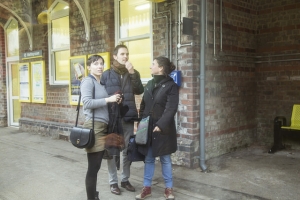Support migrant centric journalism today and donate

Changes to UK immigration are to be introduced on April 6th – read about them here!
To come under the Tier 2 (General) visa scheme it is easier if the occupation is on the Shortage Occupation List.The UK's Migration Advisory Committee (MAC) has recently reported to the Home Office, (the UK government department responsible for immigration) and advised that several occupations should be removed from the UK's Shortage Occupation List (SOL). Among them are several medical occupations. This, the MAC says, reflects the success of the UK's medical training programme. However, the MAC has advised that it would not be wise to automatically remove occupations from the SOL after 2 years.
The Shortage Occupation List contains a list of occupations for which there is a shortage of trained, available workers in the UK. If the occupation is not on the shortage occupation list then the employer will need to do a resident labour market test to show that there is no one suitable from the resident labour market to do the job. When an occupation is on the SOL the following requirements need to be met to gain enough points under the Tier 2 General Visa scheme:
- A UK employer with a sponsorship licence wishing to employ the overseas worker. This is needed for all types of Tier 2 visas.
- The overseas employee needs the relevant skills and experience to do the job. In some cases you also need relevant qualifications.
- The overseas worker will need to have a level of English equivalent to level B1 on the Common European Framework of Reference (CEFR).
Sunset clause
The MAC was also asked by the government to advise on whether it would be wise to automatically remove occupations from the SOL after 2 years. The UK government was said to support this proposal if it was likely that there would, after two years, be sufficient UK workers to do the job. The automatic removal after two years was known as ' the sunset clause'.The sunset clause proposal had met with considerable opposition from UK science and research organisations. In January 2013, Imran Khan of the Campaign for Science and Engineering wrote to the immigration minister Mark Harper saying that it would be a bad idea. Mr Khan's letter read 'We appreciate that the government wishes to accelerate progress towards self-sufficiency…for such skills. However, two years is simply far too short a timescale for even beginning to address structural problems with the UK's workforce'. Research Councils UK says that it can take up to 17 years for a scientific researcher to become an expert.
The MAC has recommended that, in future, either there should be no sunset clause, as at present, or that occupations should remain on the list for four years. The MAC says that it already reviews the list frequently to remove occupations from the list and has removed 100 occupations in the last four years. This, it says, means that it acts as an effective sunset clause in any event.
Shortages of skilled workers
It says that automatic removal could mean shortages of skilled workers in fields such as engineering, maths teaching, electricity distribution and the arts. It says that it has reduced the number of occupations on the list substantially since it was established in 2007. In 2007, 1m people in the UK worked in occupations that were on the SOL. Now, only 180,000 UK-based workers work in occupations that are on the SOL.The MAC found that emigration of skilled UK staff was leading to skills shortages in the UK. It recommended that the occupation of computer games designer should remain on the list because there was a shortage of such workers in the UK 'exacerbated by talented staff leaving the UK' to work in the games industry in US and Canada.
The MAC also recommended that some new occupations should go onto the list. These included nuclear safety engineers and mechanical engineers with skills relevant to the oil and gas industries.
Need to upskill British workers
These shortages exposed 'important issues concerning the continuing need to upskill British workers, particularly in engineering' according to the MAC chairman Professor David Metcalf. Professor Metcalf says that the UK companies, universities and the government need to work together to solve systemic problems in UK training.Workpermit.com is a specialist visa consultancy with nearly twenty-five years of experience dealing with visa applications. We are OISC registered. We can help with a wide range of visa applications to the UK or your country of choice. Please feel free to contact us for further details.
Workpermit.com is a specialist visa consultancy with nearly twenty-five years of experience dealing with visa applications. We are OISC registered. We can help with a wide range of visa applications to the UK or your country of choice. Please feel free to contact us for further details.





















